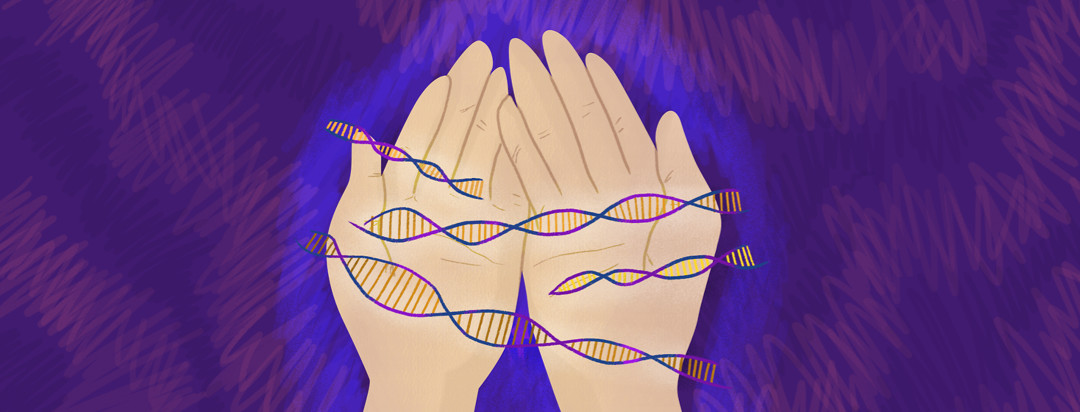What It Means To Be A Carrier
Cystic fibrosis (CF) is a hereditary disease, which means individuals inherit genes that cause CF. CF causes changes in bodily secretions, particularly in the lungs and pancreas. By understanding the genetic component of CF, we can begin to learn the risk of having a child with CF and what it means to have a gene associated with CF. If you’re a carrier of the CF mutation, there are certain things to be aware of.
Cystic fibrosis and the CFTR gene
CF is an autosomal recessive genetic disorder caused by mutations in the CFTR gene. There are more than 1,700 mutations of the CFTR gene, but all of these are not disease-causing.1 This means a child must inherit one copy of the cystic fibrosis transmembrane conductance regulator (CFTR) gene mutation from each parent.1 If an individual only has one copy of a CFTR gene mutation, they don’t have CF, but they are a “carrier.” Carriers of the CFTR genetic mutation generally do not have symptoms of CF, although there may be some health considerations to keep in mind.
If two carriers have a child, the risk of having a child with CF is:1
- 25 percent (1 in 4) the child will have CF
- 50 percent (1 in 2) the child will be a carrier but not have CF
- 25 percent (1 in 4) the child won’t be a carrier and won’t have CF
If someone with CF has a child with a carrier, the risks are different:1
- 50 percent chance the child will be a carrier but not have CF
- 50 percent chance the child will have CF
Am I a CF carrier?
It is estimated that approximately 1 in 35 Americans is a carrier of the CFTR gene mutation, which means more than 10 million Americans are cystic fibrosis carriers.1 Mutations of the CFTR gene are more common in Caucasians, Ashkenazi Jews, and some Native Americans, and less common in African Americans, Hispanics, and Asian Americans.2
The only way to know for sure if you are a cystic fibrosis carrier is to get genetic testing for CF. This is done by taking a blood sample or cells from your cheek, and then sending it out to a lab for DNA testing. While this test cannot detect all of the potential CFTR mutations, it does screen for the most common disease-causing mutations. If the test finds an abnormal copy of the gene, the test is positive; if no abnormal copy is detected, it is said to be negative.
Screening for CF carriers
Positive carrier test
If your test comes back positive, it means that a CFTR mutation has been detected. These tests are more than 99 percent accurate.1 If you do not have CF, this means only one of the copies of your CF gene has a mutation; the other one does not. If you are positive, your partner should get testing, especially if you are planning to have a child. Genetic counseling is also recommended. A genetic counselor can provide you with detailed information about what this means for you and potentially any offspring, as well as provide you with additional resources.
Negative carrier test
If your test is negative, the lab did not find any CFTR mutations. However, the test does not screen for all possible CFTR mutations, so it’s important to remember there is a small chance you might still have a mutation and be a carrier.
Genetic testing recommendations
Cystic fibrosis carrier testing, like any genetic testing, is a personal choice. That being said, it is recommended for those with CF in the family, those who have a partner with the disease, Ashkenazi Jews, and non-Jewish Caucasians.2 The American College of Obstetricians and Gynecologists (ACOG) also recommends it to those thinking about getting pregnant or planning to have a child.1
During pregnancy, the genetic testing must be done by the 16th week of pregnancy, or no more than 2 weeks after an amniocentesis.2 If you do decide to get the genetic testing, it’s important to see a genetic counselor so you can discuss the potential results, and then discuss the actual results when they come back, and what it means for the future.
Emerging carrier research
Although cystic fibrosis carriers do not have CF and are generally asymptomatic, there is emerging research which is finding that some carriers may have very mild symptoms associated with the genetic mutation. These symptoms may be a very pale shadow of the more severe symptoms someone with CF has. For instance, while someone with CF might have pancreatic insufficiency, a cystic fibrosis carrier might have a higher risk of pancreatitis.3
Other symptoms carriers might experience include higher risk of sinusitis, low blood pressure in females, higher risk of gestational diabetes, higher risk of diabetes and arthritis in later life, and reduced fertility.3 If you’re a carrier, talk with your doctor about what your carrier status means for your health, and what you can do to stay healthy.
Are you a cystic fibrosis carrier? Tell us about your experience in the comments below, or share your story with the community.

Join the conversation